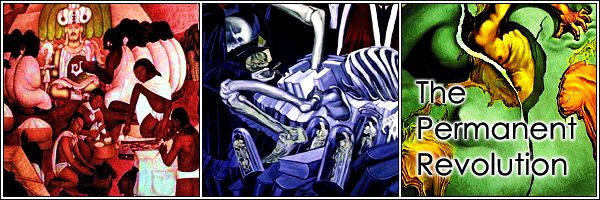Street Without Joy
Street Without Joy is the compelling and thoughtful chronicle of the French Indochina War (1945-1954) by the celebrated French soldier turned U.S. scholar Bernard Fall. Fall went on numerous trips to Southeast Asia, often talking with and living alongside French and American soldiers. He was killed by a landmine while with accompanying U.S. forces in Vietnam in 1967.
The meat of the book is committed to various large-scale operations by French forces against the Viet-Minh Communists. Here, Fall's first hand experience shines through, with vivid, all-too-real descriptions of the crushing humidity, of the disgust at peeling off leeches or being struck with dysentery, of feet swollen after endless marches, of the murderous, confusing cacophony of fighting... It is mostly a depressing list of indecisive failures: Ninh-Binh, Hoa-Binh, Operation Lorraine, "Street Without Joy" and other operations, with their familiar pattern of tens of thousands of troops with tanks and heavy weapons getting bogged down in mountain, jungle and marsh, the enemy picking away at them and their supply lines if he was stronger, melting into the bush and the population if he is not.

Bernard Fall with U.S. troops in Vietnam.
Viet-Minh attacks were brutal. Frenchmen and their African and Indochinese allies faced artillery fire from an invisible enemy hidden in in the bush, having their faces and limbs blown off, being fried in their tanks, or, if only lightly injured, find their wounds festering for days in the tropical heat. If the V.M. flee, the French had the impossible task of searching villages for Communists and supply depots. The rebel soldiers would hide themselves among the mostly skinny, flat-chested Vietnamese peasant women: a prudish French officer was ordered by his superiors to finger them to find the men among them. At other times, there is no such discrimination. Fall laconically reports his flying beside French bombers as they loose their napalm: 'scratch one Lao village - and we don't even know whether the village was pro-Communist or not.' In a kind of war where the support of the people is critical, the means for tactical victory could spell strategic defeat.
Fall also describes the men and women of Indochina and the French forces in often picturesque detail. Commanders included glamorous and energetic personalities like Free French leader Marshal Jean de Lattre de Tassigny whose son died in Indochina during his command or General René Cogny who had fought in the Resistance and walked with a limp and a cane due to permanent injuries from Gestapo torture. "Ex-Nazi" German Foreign Legionnaires fought alongside French Army survivors of Dachau and Buchenwald... after months spent in the jungle or in a Viet-Minh P.O.W. camp these same soldiers might come home with skeletal bodies 'like Christ off the cross'. The women are numerous. In addition to the usual wives, nurses and female military personnel there is the curious institution (at odds with the book's title) of the ‘Mobile Field Brothels’ of North African prostitutes that accompanied some units. Given that the U.S. was giving substantial aid to the war effort, the brothels gave French P.R. officers some worry at the possibility of an American newspaper headlining that the U.S. was financing French fornication...

A path without joy...
In addition to the individual descriptions of battles and people, Fall wraps his chronicle with a preface and a conclusion that ruminate on the concept of ‘Revolutionary Warfare’, or political insurrection by Communist or Nationalist forces with the aim of subverting an established regime. He describes the experiences Great Britain, France and the United States in Malaya, Indochina and Algeria, to attempt to inform discussion of the escalating war in the Vietnam (the book was published in 1964).
We find here that past experience must inform the present. Fall elaborates concepts that were as valid then in Southeast Asia and North Africa as they are today in Afghanistan and Iraq including the necessity of winning over the population (the primacy of the political over the military) and the notion of a hostile 'active sanctuary' providing refuge, material aid, and sometimes soldiers to the insurgents. Fall's bibliography even lists as the best handbook to counter-insurgency to be a slim, little known volume by French Colonel David Galula, Counter-Insurgency: Theory and Practice. Little known, that is, until about three years ago, when new the top U.S. commander in Iraq David Petraeus began to promote its reading and teachings within the U.S. military and wrote the preface to the most recent edition.

Street Without Joy, for those who love war stories, have an interest in the wars of Southeast Asia, or are students of counter-insurgency.
The meat of the book is committed to various large-scale operations by French forces against the Viet-Minh Communists. Here, Fall's first hand experience shines through, with vivid, all-too-real descriptions of the crushing humidity, of the disgust at peeling off leeches or being struck with dysentery, of feet swollen after endless marches, of the murderous, confusing cacophony of fighting... It is mostly a depressing list of indecisive failures: Ninh-Binh, Hoa-Binh, Operation Lorraine, "Street Without Joy" and other operations, with their familiar pattern of tens of thousands of troops with tanks and heavy weapons getting bogged down in mountain, jungle and marsh, the enemy picking away at them and their supply lines if he was stronger, melting into the bush and the population if he is not.

Bernard Fall with U.S. troops in Vietnam.
Viet-Minh attacks were brutal. Frenchmen and their African and Indochinese allies faced artillery fire from an invisible enemy hidden in in the bush, having their faces and limbs blown off, being fried in their tanks, or, if only lightly injured, find their wounds festering for days in the tropical heat. If the V.M. flee, the French had the impossible task of searching villages for Communists and supply depots. The rebel soldiers would hide themselves among the mostly skinny, flat-chested Vietnamese peasant women: a prudish French officer was ordered by his superiors to finger them to find the men among them. At other times, there is no such discrimination. Fall laconically reports his flying beside French bombers as they loose their napalm: 'scratch one Lao village - and we don't even know whether the village was pro-Communist or not.' In a kind of war where the support of the people is critical, the means for tactical victory could spell strategic defeat.
Fall also describes the men and women of Indochina and the French forces in often picturesque detail. Commanders included glamorous and energetic personalities like Free French leader Marshal Jean de Lattre de Tassigny whose son died in Indochina during his command or General René Cogny who had fought in the Resistance and walked with a limp and a cane due to permanent injuries from Gestapo torture. "Ex-Nazi" German Foreign Legionnaires fought alongside French Army survivors of Dachau and Buchenwald... after months spent in the jungle or in a Viet-Minh P.O.W. camp these same soldiers might come home with skeletal bodies 'like Christ off the cross'. The women are numerous. In addition to the usual wives, nurses and female military personnel there is the curious institution (at odds with the book's title) of the ‘Mobile Field Brothels’ of North African prostitutes that accompanied some units. Given that the U.S. was giving substantial aid to the war effort, the brothels gave French P.R. officers some worry at the possibility of an American newspaper headlining that the U.S. was financing French fornication...

A path without joy...
In addition to the individual descriptions of battles and people, Fall wraps his chronicle with a preface and a conclusion that ruminate on the concept of ‘Revolutionary Warfare’, or political insurrection by Communist or Nationalist forces with the aim of subverting an established regime. He describes the experiences Great Britain, France and the United States in Malaya, Indochina and Algeria, to attempt to inform discussion of the escalating war in the Vietnam (the book was published in 1964).
We find here that past experience must inform the present. Fall elaborates concepts that were as valid then in Southeast Asia and North Africa as they are today in Afghanistan and Iraq including the necessity of winning over the population (the primacy of the political over the military) and the notion of a hostile 'active sanctuary' providing refuge, material aid, and sometimes soldiers to the insurgents. Fall's bibliography even lists as the best handbook to counter-insurgency to be a slim, little known volume by French Colonel David Galula, Counter-Insurgency: Theory and Practice. Little known, that is, until about three years ago, when new the top U.S. commander in Iraq David Petraeus began to promote its reading and teachings within the U.S. military and wrote the preface to the most recent edition.

Street Without Joy, for those who love war stories, have an interest in the wars of Southeast Asia, or are students of counter-insurgency.
Labels: Bernard Fall, Book Review, Counter-Insurgency, Indochina War, Street Without Joy



0 Comments:
Post a Comment
<< Home